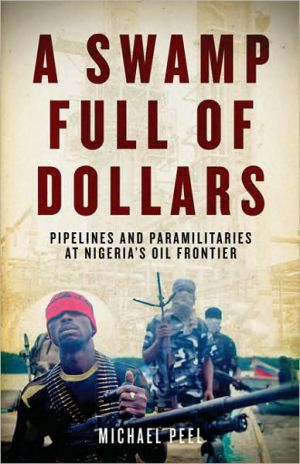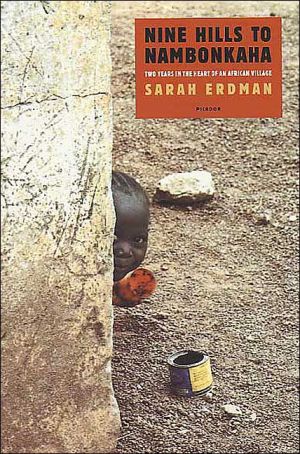A Swamp Full of Dollars: Pipelines and Paramilitaries at Nigeria's Oil Frontier
The largest U.S. trading partner in sub-Saharan Africa, petroleum-rich Nigeria exports half its daily oil production to the United States. Like many African nations with natural resources coveted by the world's superpowers, the country has been shaped by foreign investment and intervention, conflicts among hundreds of ethnic and religious groups, and greed. Polio has boomed along with petroleum, small villages face off with giant oil companies, and scooter drivers run their own ministates....
Search in google:
A gripping account of how the 50-year life of Nigeria has been shaped by the crude oil that flows from its Niger Delta, this chronicle is peopled with a cast of characters that is stranger than fiction—from the Area Boy gangsters of Lagos and the anti-imperialist militants in their swamp forest hideouts to the oil company executives in their office suites and a corrupt state governor who stashed a million dollars in cash in his west London penthouse. Part travelogue, part straightforward reportage, this cautionary tale for a world that runs on petroleum focuses on the chaos, violence, and politics surrounding oil in Nigeria. Revealing entanglements between Nigerian government officials and the global oil industry, this examination weaves an absorbing, illuminating, and often-surprising story. Kirkus Reviews A dynamic exploration of the geopolitics of oil that link Nigeria with its two biggest customers, Great Britain and the United States, revealing the corruption and poverty-and vitality-that permeate that oil-rich country. Financial Times legal correspondent Peel, who served as the publication's former West Africa correspondent for many years, calls Nigeria "a little laboratory for the arrogance of a fossil-fuel-obsessed world" and the Niger Delta region a "Mad Max world of roving bandits." How it got this way is a long, complicated story, dating back to the palm-oil wars of the 19th century, when Nigeria was created as a state by and for the benefit of the British. Peel's brief history of European colonialism in the area pulls no punches. His present-day report opens and closes with his intrepid visits to militants in the lawless swamps and jungles of the delta who are determined to get their share of the country's oil wealth. In between he talks with oil-company executives, an urban hustler and warlord and drivers of Lagos's motorbike taxis and buses; he challenges police bribery; and he spends time aboard a U.S. Coast Guard vessel patrolling Nigeria's coastal waters for oil-thieving pirates. The author's message is clear: If the West is looking to Nigeria as insurance against oil-supply problems in the unstable Middle East, the bet is a shaky one. Peel's vivid reporting reveals the systematic plundering of Nigeria's assets by native politicians and foreign businessmen alike. While the alleged complicity of Western financial institutions in Nigeria's internal corruption is not news, the author's judgment that London is in many ways no better than Lagos is surprising. In both cities he sees the same disparity between the haves and the have-nots, with Lagos being more open and blatant in its injustices and abuses of power. In a note of hopefulness about Nigeria's future, Peel asserts that its very newness as a nation makes radical change more possible than in older countries like Great Britain, where wrongs have been entrenched and concealed for centuries. A gripping account of a disastrous situation in the making.
\ Kirkus ReviewsA dynamic exploration of the geopolitics of oil that link Nigeria with its two biggest customers, Great Britain and the United States, revealing the corruption and poverty-and vitality-that permeate that oil-rich country. Financial Times legal correspondent Peel, who served as the publication's former West Africa correspondent for many years, calls Nigeria "a little laboratory for the arrogance of a fossil-fuel-obsessed world" and the Niger Delta region a "Mad Max world of roving bandits." How it got this way is a long, complicated story, dating back to the palm-oil wars of the 19th century, when Nigeria was created as a state by and for the benefit of the British. Peel's brief history of European colonialism in the area pulls no punches. His present-day report opens and closes with his intrepid visits to militants in the lawless swamps and jungles of the delta who are determined to get their share of the country's oil wealth. In between he talks with oil-company executives, an urban hustler and warlord and drivers of Lagos's motorbike taxis and buses; he challenges police bribery; and he spends time aboard a U.S. Coast Guard vessel patrolling Nigeria's coastal waters for oil-thieving pirates. The author's message is clear: If the West is looking to Nigeria as insurance against oil-supply problems in the unstable Middle East, the bet is a shaky one. Peel's vivid reporting reveals the systematic plundering of Nigeria's assets by native politicians and foreign businessmen alike. While the alleged complicity of Western financial institutions in Nigeria's internal corruption is not news, the author's judgment that London is in many ways no better than Lagos is surprising. In both cities he sees the same disparity between the haves and the have-nots, with Lagos being more open and blatant in its injustices and abuses of power. In a note of hopefulness about Nigeria's future, Peel asserts that its very newness as a nation makes radical change more possible than in older countries like Great Britain, where wrongs have been entrenched and concealed for centuries. A gripping account of a disastrous situation in the making.\ \







